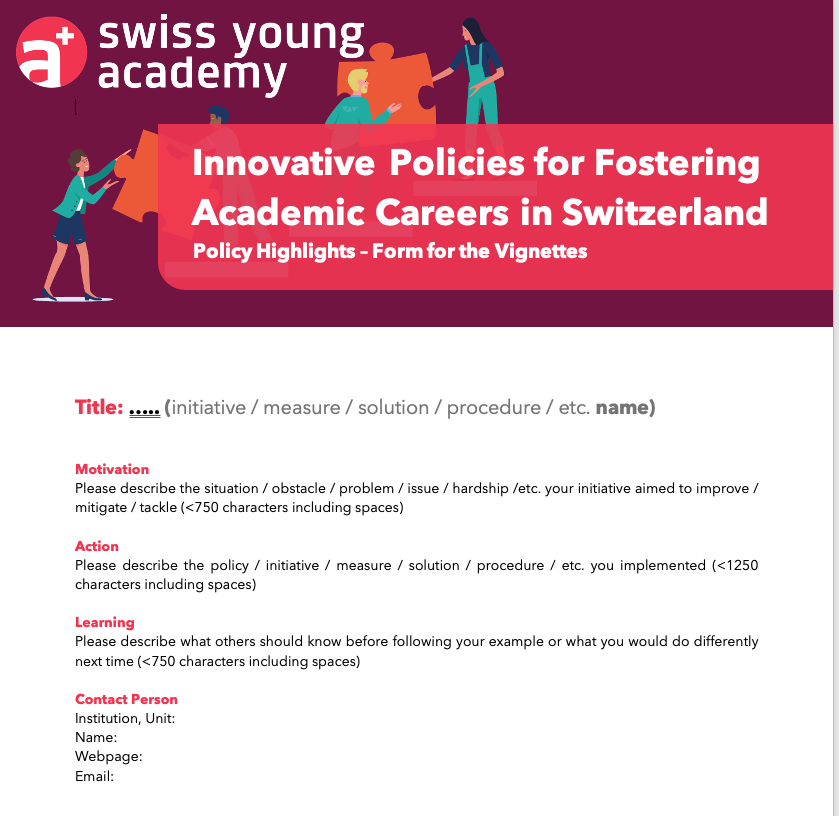Wissenschaft vernetzen.
Innovative Policies for Fostering Academic Careers in Switzerland

Background
The academic career is in crisis [1]. The number of researchers with fixed term contracts in unstable positions has been increasing steadily for the last two decades, while stable positions remain rare and the prospects of permanent employment slim for most researchers [2]. This instability has profound implications for individual early career researchers, their lives, and health, for the diversity and inclusivity of the research system, and for the quality and integrity of the research output and teaching [3]. While these issues have long been known and discussed in Switzerland and abroad, little comprehensive action has been taken [4].
Objectives
This project seeks to work with the stakeholders in Switzerland to identify best and new practices in academic employment and career development (see first results here) and create a platform for exchanges about such practices and pathways to structural change in order to ensure a sustainable future for research in Switzerland.
Activities
This project will conduct a survey and organize a series of meetings to foster exchanges about best and innovative practices in academic career development.
Expected societal and scientific added value
This project aims to value the attractiveness of Switzerland as a site of research, the societal well-being of researchers, and the quality of science itself by improving the careers of researchers.
References
[1] OECD (2021), "Reducing the precarity of academic research careers", OECD Science, Technology and Industry Policy Papers, No. 113, OECD Publishing, Paris.
[2] Schweizerische Akademie der Geistes- und Sozialwissenschaften SAGW (2018), "Next Generation: Für eine wirksame Nachwuchsförderung", Akademien der Wissenschaften Schweiz, Swiss Academies Series, Vol. 13, No 1, Bern.
[3] Bass AG (2022), "Schlussbericht Akademische Karriere, Partnerschaft und Familie – Befragung des wissenschaftlichen Personals der Schweizer Universitäten und des ETH-Bereichs", im Auftrag des Swissuniversities Programms Chancengleichheit und Hochschulentwicklung (2017–2020/21), Bern
[4]
- Fink, Hirschi, Hirt, Paszkowski, Mayer, Maeder (2012), "VISION 2020: Ohne massiven Umbau der universitären Hierarchien wird die Schweiz ihre Eliten vorwiegend aus dem Ausland einkaufen müssen", Positionspapier junger Forschender, Hearing WBK-‐S, 2. April 2012, Bern
- Schweizerischer Wissenschafts- und Technologierat (2013), "Nachwuchsförderung für eine innovative Schweiz. Grundlagen für eine umfassende Förderung von Nachwuchskräften für Wissenschaft, Wirtschaft und Gesellschaft", SWTR Schrift 2/2013, Bern
- Staatssekretariat für Bildung, Forschung und Innovation SBFI (2014), "Massnahmen zur Förderung des wissenschaftlichen Nachwuchses in der Schweiz", Bericht des Bundesrats in Erfüllung des Postulats WBK-SR (12.3343), Bern
Project Speaker
Project Members
Fanny Georgi (2023)
Marco Cavallaro

